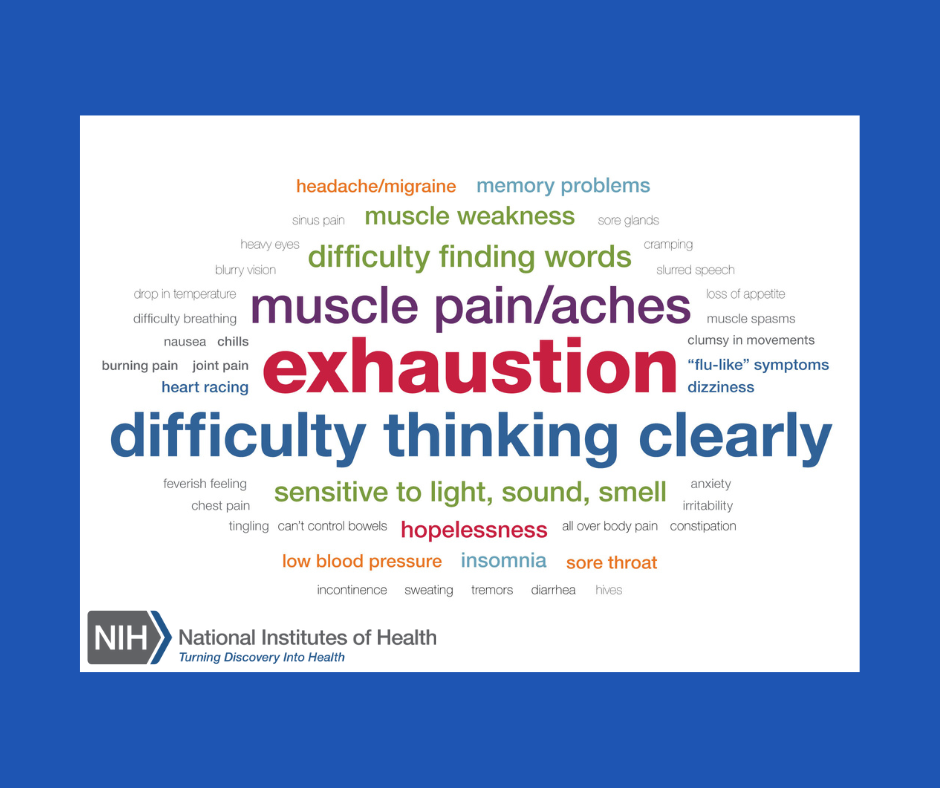In 2021 the UK National Institue for Health and Care Excellence (NICE) published new guidlines for ME/CFS. The full guidelines can be found here.
A summarised version of the guidelines produced by the ME Association can be downloaded for free from their website using this link.
Contained in the guidelines was a definition of the 4 core symptoms which must be present to diagnose ME/CFS
- Debilitating fatigue that is worsened by activity and is not significantly relieved by rest
- Post Exertional Malaise after activity, which is delayed in onset, disproportionate to the activity, and has a prolonged recovery
- Unrefreshing sleep or sleep disturbances
- Cognitive difficulties (sometimes called “Brain fog”) which may include memory problems, difficulty concentrating, trouble finding words etc.
Post Exertional Malaise or PEM is the hallmark symptom of ME/CFS which differentiates it from other fatigue related illnesses
As well as these core symptoms there are a wide range of other symptoms which may be present

The NICE 2021 guidleines advise healthcare professionals that where the 4 core symptoms have been present for greater than 6 weeks in adults, or 4 weeks in children and young people, then ME/CFS should be considered if the patient has also had a significant reduction in their level of activity function and the symptoms are not explained by another condition.
A range of tests should be carried out (see guidlines) to exclude other conditions. While ME/CFS is suspected patients should be advised:
Not to “push through” and use more energy than they have
Rest and conserve energy, chaging daily routines if required.
Where the 4 core symptoms persist for more than 3 months and no other condition is able to explain these, then the patient should be diagnosed with ME/CFS and referred to a specialist ME/CFS service to confirm the diagnosis and develop a care and support plan.